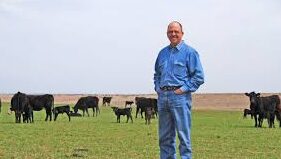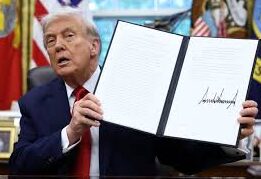Rising beef prices in the United States have now come a political issue.
Former President Donald Trump, who lately declared that affectation was” over,” is now speaking out on his own as affectation challenges his pledge to lower food prices for the American people.
This week, Trump took to social media to call on drovers to lower the prices of their creatures.
But his appeal, and other measures proposed by his government, have come a cause for concern for growers. They say these programs will reduce their income, while making no egregious difference to the average consumer.
Since the 1980s, the number of cattle drovers in the United States has been steadily declining. This is dwindling the force of meat and driving up prices, as demand is still high.
According to the U.S. Department of Agriculture, the number of beast in the country has reached a 75- time low. Since 2017 alone, further than 1.5 lakh granges have closed, a decline of 17.
Beast growers say the junction of meat processing companies over the once four decades has increased the pressure on them. Rising prices of critical coffers like diseases and ministry have added to the difficulties.
Several times of failure have made the situation worse, forcing growers to reduce their herds.
Christian Lowell, a planter in Illinois, says corridor of his ranch that were lush as a child are now dry.
” All these factors together make up a broken system,” he said.”
According to affectation data, the price of beef increased by 12.9 percent in a time to September, while the price of beef steak increased by 16.6 percent.
A pound of cream now costs an normal of$ 6.33, over from$ 5.58 a time ago.
This increase is much advanced than the overall food affectation, which stands at 3.1.
” Herds are steadily declining, but people still want American meat, so prices are high,” said Brenda Bottel, an agriculturist at the University of Wisconsin.
Darryl Peel, an agriculturist at Oklahoma State University, says prices will remain high through the end of this decade because it takes times to make new herds.
He said the Trump administration has limited options to lower prices.
South Dakota planter Bill Bullard closed his 300 cow ranch in 1985, when the meat processing companies began to combine.
He’s now the chairman of R- Shin USA, a cattle breeders’ association. He says that in the last time itself, growers have started getting better prices because the force has come down so much that the processing companies have had to raise prices.
still, he says the dependence on significances and the influence of big companies remains, leaving growers” not trusting the request system” and reticent to raise their herds.
” The chairman’s proffers do n’t touch on the real issue,” he said. They’re only fastening on the symptoms, not the cause.”






